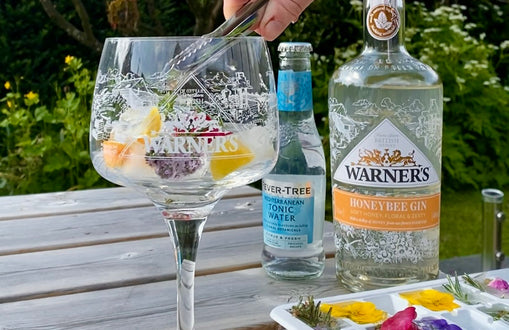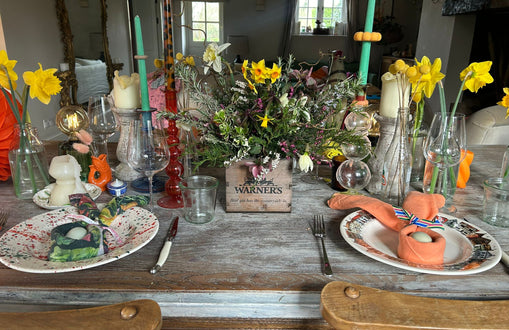#NationalAllotmentsWeek
#SustainabilitySunday -
National Allotments Week
Gin Fans! Our Botanical Garden here at Warner's Distillery is a source of inspiration, ingredients and garnish and we’d love you to have a little slice of Falls Farm at home. Whether you have access to an allotment or only have space for a small window box, this #NationalAllotmentsWeek we’ll show you quick and easy ways to grow your own…and enjoy a few G&T’s in the process!
Did you know, a lot of the most commonly grown herbs on allotments are also included in the recipes for the gin we make here at Warner's? Many of them are not only great when used in cooking but also make great garnishes for your G&T's too! Take a look at a few examples below and check out the most commonly grown botanicals.
- Mint – it’s not only epic in mint sauce with a roast dinner, but tastes great in cocktails… check out our Lemon Balm Smash. Did you know that with every bottle of our Lemon Balm Gin you receive a free pack of lemon balm seeds to grow your own mint garnish? Check out our Easy Guide to Planting with Jonny, our Conservation and Sustainability Manager, for tips on how to plant your seeds.
- Basil – a great addition to pizza and a perfect garnish with our Harrington Dry Gin emphasising the savoury notes of black pepper and cardamom.
- Sage – recommended as a garnish with our Honeybee Gin served with Fever-Tree Mediterranean Tonic and also delicious as a fresh herbal tea.
- Lavender – not only a great garnish with our Honeybee Gin, but it is also a fantastic source of nectar for bees during mid to late summer.
- Rhubarb – awesome in a crumble and you can also chop fresh rhubarb into cubes, freeze and use them as ice cubes when having a G&T – genius!
If you’re interested in growing your own but not sure where to start, the RHS has put together this great list of how to get started!
Keeping Bees on allotments:
Did you know that gardens and allotments provides vital sources of pollen and nectar for bees throughout the season, from early Spring to late Autumn. These small but mighty bees provide a service to those who grow their own, as they will pollinate both fruit and vegetables, from strawberries to runner beans. The best pollinators are the solitary bees which are 120 x more effective at pollination than the Honeybee, so why not put up your own solitary bee hotels on your allotment using this handy how-to? Solitary bees don’t sting, and they don’t swarm, so you won’t need permission to pop a little hotel on your allotment. However, you’ll need to speak to your local allotment about keeping Honeybees, as you will need permission to keep hives on your plot (they look cute, but can sting and swarm).
#GrowYourOwn




